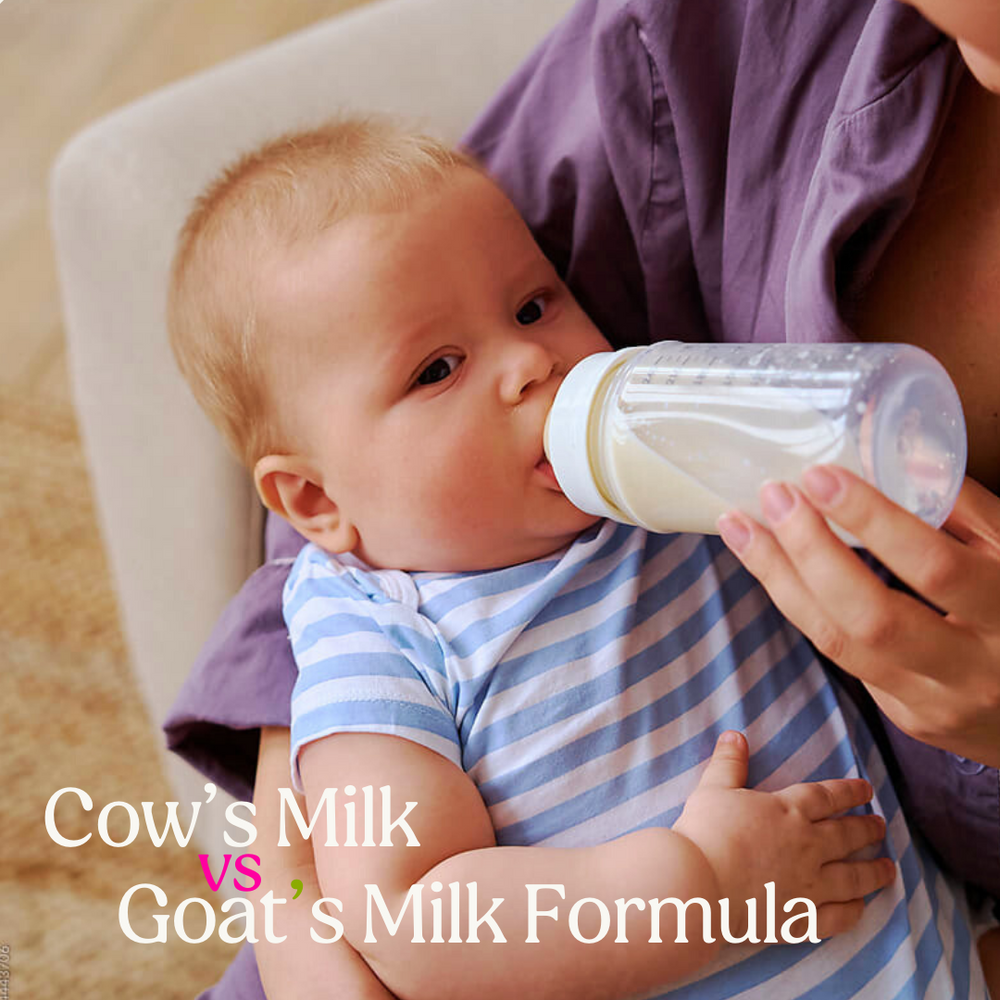Nutrition
9 mins
Advice and Tips on
Switching Formula
Whatever the reason, switching from one formula to another can feel daunting. If you’re switching when your baby is unsettled your anxiety level is likely to be high. We speak to lots of parents with similar concerns and you’re not alone. We have some tried and tested tips that can help.
Before you switch try having a chat with a healthcare professional first. This gives you the chance to discuss any concerns and make sure that switching is the best place to begin.
Once you’ve decided to switch there are some ways that you can make the transition easier for you and baby.
Easy does it
Whilst you may be tempted to transition quickly a slow and gradual change will give your little one’s tiny tummy the time they need to adjust. They may also need time to adjust to a new taste.
Start with one feed the morning of Day 1 and swap in one feed of your new formula (instead of the old one) each day. So it will be two new formulas feeds on Day 2, 3 on day three and so on, until you have completely switched over.
We find it’s best to switch gradually over a week or so.
How long will it take?
A slow switchover is best because all babies have a digestive system that is still developing. This means it takes time to adjust to any changes in feeds.
We find that it takes around two weeks for a baby to settle on a new formula. Each baby is unique and they may become accustomed to their new feed sooner (or may even take a bit longer).
Should I switch back again?
It can be tempting to switch back to your old formula, or try another new one if your baby doesn’t settle immediately. We recommend avoiding this as further changes over a short timeframe gives your baby even more to adjust to.
It’s best to know that it will take time to settle and so allow your baby plenty of time to adjust to a new formula. Don’t be tempted to switch back if baby doesn’t settle within the first day or two.
Some changes are normal during a transition, such as changes to poos (more on that later). Of course, if you have any concerns do discuss them with your healthcare professional.
Will their poo change?
It is normal for baby’s poo to change colour and consistency from time to time. They will go through phases where they poop more or less often.
It’s worth knowing that when you change formula your baby may poo more or less often than before and their can change colour too (healthy baby poos can be a whole range of colours – even green). As long as your baby is happy then there is no cause for concern.
Will my baby like the taste?
All formulas taste slightly different (Nannycare tastes mild and creamy). This change in taste is part of the settling process so give your baby time to get used to it.
Remember too that even breast milk changes taste, depending on what a mum eats, your baby should be used to a change in milk flavour.
If in doubt
At any time during a transition you are concerned speak to your healthcare professional. You can also call the Nannycare team and we'll be happy to help.
Tips for Transitioning
- Serve the milk at the same temperature as your previous formula.
- Do what you can to minimise any distractions when you are feeding with the new formula.
- Slow down, take your time. Try to avoid serving new formula when you are in a rush or feeling stressed.
- If at all possible avoid adding in any other changes to the routine while your baby is getting used to their new formula, such as changing the bottle or teat .
- Be patient, it may take a little time for baby to adjust.
- Avoid mixing the old and new formulas in the same feed as they’re not designed to be combined. Keep them to separate feeds while switching over from one to another.
- Seek professional advice. At any time you may benefit from some advice and reassurance from a healthcare professional. You can also call us here at Nannycare to discuss formula switching with us.
Where can I find further information?
There are some very good general advice sites on all aspects of infant feeding which you may find helpful such as the NHS Start 4 Life and NCT Feeding.
please read this important notice
Breastfeeding is best, with many benefits for you and baby. Talk to your midwife or health visitor about how to feed your baby and eat a healthy, balanced diet in preparation for, and during, breastfeeding.
We also recognise that breastfeeding isn’t always an option for parents. We support the right of parents to make the appropriate choices for their baby, based on having all the information needed to make informed choices about their baby’s nutrition.
Breastfeeding is best, with many benefits for you and baby. Talk to your midwife or health visitor about how to feed your baby and eat a healthy, balanced diet in preparation for, and during, breastfeeding.
We also recognise that breastfeeding isn’t always an option for parents. We support the right of parents to make the appropriate choices for their baby, based on having all the information needed to make informed choices about their baby’s nutrition.


.png?v=1681739788729)
